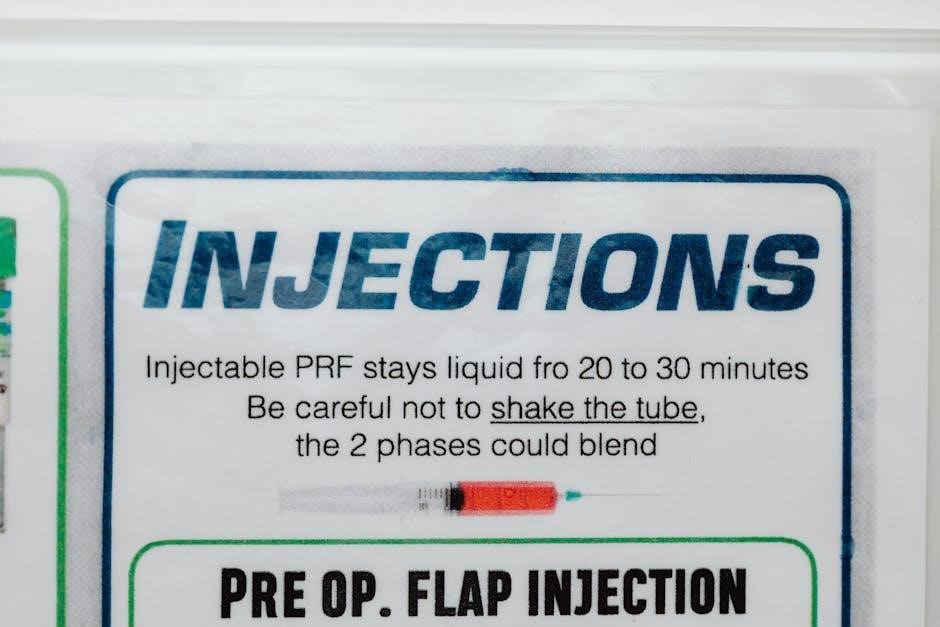1․1 Overview of the MO-PTE Form
The MO-PTE form is designed for pass-through entities, such as S corporations and partnerships, to report income and claim deductions at the entity level in Missouri․
The MO-PTE form enables pass-through entities, such as S corporations and partnerships, to report income and deductions at the entity level in Missouri․ It streamlines state tax compliance for entities meeting specific filing thresholds, ensuring accurate reporting of pass-through income․ The form does not replace the requirement to file MO-1065 or MO-1120S, and it aligns with federal tax deductions for owners․
1․2 Purpose of Pass-Through Entity Tax Reporting
The MO-PTE form allows pass-through entities to report and pay taxes at the entity level, reducing federal taxable income for owners․ This reporting ensures compliance with Missouri tax laws while providing federal deduction benefits, making it advantageous for partnerships and S corporations to accurately report their income and deductions in a streamlined manner․

Eligibility and Requirements
Pass-through entities, such as S corporations and partnerships, must file MO-PTE if they meet specific income thresholds and conditions․ All members are bound by the election once made․
2․1 Who Must File the MO-PTE Return?
Pass-through entities, such as partnerships and S corporations, are required to file the MO-PTE return if they meet specific income thresholds and elect to be an affected business entity․ These entities must still file their respective Forms MO-1065 or MO-1120S in addition to the MO-PTE․ The election binds all members, and no opt-out is allowed for affected business entities with extended filing deadlines after August 28, 2024․
2․2 Thresholds and Conditions for Filing
Pass-through entities must meet specific income thresholds to be required to file the MO-PTE return․ The election to become an affected business entity is mandatory for eligible entities, and they must file both the MO-PTE and their respective Forms MO-1065 or MO-1120S․ Missing the filing deadline may result in the loss of federal deduction benefits․ The election is binding, and opt-out provisions are restricted for entities filing after certain dates․

Filing Requirements and Deadlines
Pass-through entities must file the MO-PTE return on or before the 15th day of the fourth month following the end of their tax year․
3․1 General Filing Deadline for MO-PTE
The MO-PTE return must be filed on or before the 15th day of the fourth month following the close of the tax year․ This deadline applies to all pass-through entities, including S corporations and partnerships, ensuring timely reporting of income and deductions at the entity level in Missouri․
3․2 Extensions and Late Filing Consequences
Extensions for filing MO-PTE may be granted under specific conditions, typically allowing an additional six months․ However, the extension does not defer payment due dates․ Late filing may result in penalties and interest on unpaid taxes․ Missing deadlines can also lead to late payment penalties, emphasizing the importance of timely submissions to avoid additional charges and compliance issues․

Key Components of the MO-PTE Form
The MO-PTE form includes income reporting, deductions, and member-specific details, ensuring compliance with Missouri’s pass-through entity tax requirements and accurate state tax filings․
4․1 Income Reporting and Calculations
Pass-through entities must report total income, including ordinary business income, rental income, and gains from sales․ Deductions and federal qualified business income calculations are included․ The form requires accurate reporting of each member’s share of income and deductions, ensuring compliance with Missouri tax laws and proper allocation of tax liabilities among members․
4․2 Credits and Deductions Available
Pass-through entities may claim various credits and deductions, including the federal qualified business income deduction under 26 U․S․C․ Section 199A․ Missouri-specific credits, such as the Historic Preservation Tax Credit, may also apply․ Additionally, entities that make timely anticipated tax payments may benefit from deductions tied to these payments, reducing overall tax liability for members․

Payment Options and Anticipated Tax
Entities can make anticipated tax payments to benefit from federal deductions, with payments due by December 31, 2024, for the 2024 tax year․
5․1 Anticipated Tax Payments and Benefits
Pass-through entities can make anticipated tax payments to Missouri, providing federal deduction benefits․ Payments made by December 31, 2024, apply to the 2024 tax year, reducing the entity’s tax liability․ These payments also benefit owners by allowing them to claim deductions on their personal returns, optimizing tax efficiency and avoiding potential penalties․
5․2 Payment Methods for MO-PTE
Payment methods for MO-PTE include mailing the return and Form MO-2827 to the Missouri Department of Revenue at P․O․ Box 3080, Jefferson City, MO 65105, or emailing them to corporatedor․mo․gov․ Anticipated tax payments can be made using Form MO-2827 by December 31, 2024․ Electronic filing options are also available for convenience and faster processing of payments․

Special Elections and Opt-Outs
Members of an affected business entity may opt-out under specific conditions, such as filing deadlines on or after August 28, 2024, unless the entity has already filed․
6․1 Electing to Become an Affected Business Entity
Electing to become an Affected Business Entity (ABE) allows pass-through entities to file the MO-PTE form, ensuring compliance with state tax requirements․ This election is made by checking the designated box on the MO-PTE form․ It enables the entity to benefit from federal deductions and streamlined tax reporting․ Key considerations include understanding the implications for member opt-outs and ensuring timely filing․ The election is subject to specific deadlines and must be accurately documented․
6․2 Member Opt-Out Provisions and Conditions
Members of an Affected Business Entity (ABE) may opt out under specific conditions․ The opt-out is allowed only if the ABE’s original filing deadline is on or after August 28, 2024, and the ABE has not filed an amended return․ If these conditions are not met, no opt-out is permitted, and the entity must enter “0․” This ensures compliance with state tax regulations and maintains accurate reporting․ Members should review federal deduction implications before opting out, as it may affect their benefits․ Proper documentation is required to avoid discrepancies and ensure seamless processing․ The opt-out does not relieve the entity from filing other required forms, such as MO-1065 or MO-1120S․ It is essential to maintain records of member elections for audit purposes and to prevent future disputes․ Entities must ensure all opt-out requests are valid and submitted timely to avoid penalties․ This provision ensures fairness and clarity in tax obligations for all parties involved․ Accurate reporting is critical to maintaining compliance with both state and federal tax laws․ The opt-out process is designed to simplify tax obligations while ensuring transparency and accountability․ Entities must communicate clearly with members regarding their opt-out status and its implications․ This ensures that all stakeholders are informed and compliant with applicable regulations․ The opt-out provision is a key component of the MO-PTE framework, balancing flexibility with regulatory requirements․ Entities must carefully review and understand the conditions before allowing member opt-outs to avoid unintended consequences․ Proper planning and consultation with tax professionals are recommended to navigate this process effectively․ The opt-out provisions are subject to change, so entities should stay informed about updates to ensure ongoing compliance․ By adhering to these guidelines, entities can maintain accurate records and fulfill their tax obligations without unnecessary complications․ The opt-out process is a valuable tool for managing tax liabilities but requires careful attention to detail and adherence to established rules․ Entities that fail to comply may face penalties or delays in processing․ It is crucial to understand the implications of member opt-outs and how they impact the entity’s overall tax situation․ Clear communication and thorough documentation are essential for a smooth and compliant opt-out process․ Entities should consult the latest MO-PTE instructions and seek professional advice to ensure they are meeting all requirements․ The opt-out provisions are designed to provide flexibility while maintaining the integrity of the tax system․ Entities must balance member preferences with regulatory obligations to achieve optimal outcomes․ The opt-out process is a critical aspect of the MO-PTE framework, requiring careful consideration and precise execution․ By following the guidelines and maintaining open lines of communication, entities can navigate this process with confidence․ The opt-out provisions are a key feature of the MO-PTE system, offering members a choice while ensuring compliance․ Entities must prioritize accuracy and transparency to uphold their responsibilities․ The opt-out process reflects the evolving nature of tax regulations and the need for adaptability․ Entities that proactively manage this process can minimize risks and maximize benefits․ The opt-out provisions underscore the importance of understanding and adhering to tax laws․ Entities must remain vigilant and informed to navigate this complex landscape effectively․ The opt-out process is a testament to the balance between flexibility and compliance in tax reporting․ Entities that embrace this framework can streamline their operations while meeting regulatory expectations․ The opt-out provisions are a vital component of the MO-PTE system, requiring careful management and oversight․ Entities must allocate sufficient resources to ensure compliance and avoid penalties․ The opt-out process highlights the interconnected nature of tax obligations and member rights․ Entities must prioritize clarity and precision in all communications and documentation․ The opt-out provisions are a reflection of the dynamic nature of tax regulations and the need for ongoing education․ Entities that stay informed can make informed decisions and maintain compliance․ The opt-out process is a critical tool for managing tax liabilities, but it demands meticulous attention to detail․ Entities must invest time and effort to understand and implement the guidelines correctly․ The opt-out provisions are a key aspect of the MO-PTE framework, requiring entities to balance member preferences with regulatory requirements․ By doing so, they can achieve compliance while respecting member choices․ The opt-out process is a nuanced aspect of tax reporting that requires careful navigation․ Entities must leverage available resources and expertise to ensure successful outcomes․ The opt-out provisions are a cornerstone of the MO-PTE system, offering flexibility while upholding compliance standards․ Entities must approach this process with diligence and precision to avoid complications․ The opt-out process is a vital component of the MO-PTE framework, requiring entities to maintain accurate records and adhere to deadlines․ By doing so, they can ensure smooth processing and avoid penalties․ The opt-out provisions are a key feature of the MO-PTE system, designed to accommodate member preferences while ensuring regulatory compliance․ Entities must carefully review and implement the guidelines to achieve optimal results․ The opt-out process is a critical aspect of tax reporting that demands careful attention and precise execution․ Entities that prioritize compliance and transparency will navigate this process successfully․ The opt-out provisions are a valuable tool for managing tax obligations, offering flexibility while maintaining accountability․ Entities must stay informed and proactive to leverage this option effectively․ The opt-out process is a key element of the MO-PTE framework, requiring entities to balance member rights with regulatory responsibilities․ By doing so, they can ensure compliance and maintain harmony among stakeholders․ The opt-out provisions are a testament to the complexity and nuance of tax regulations․ Entities must approach this process with caution and seek professional guidance to avoid pitfalls․ The opt-out process is a critical component of the MO-PTE system, requiring entities to prioritize accuracy and compliance․ By adhering to the guidelines, they can streamline their tax reporting and avoid unnecessary challenges․ The opt-out provisions are a key feature of the MO-PTE framework, offering members a choice while ensuring entities meet their tax obligations․ Entities must manage this process with care to uphold their responsibilities․ The opt-out process is a vital aspect of tax compliance, requiring entities to maintain precise records and adhere to established rules․ By doing so, they can ensure accurate reporting and avoid penalties․ The opt-out provisions are a cornerstone of the MO-PTE system, providing flexibility while upholding regulatory standards․ Entities must approach this process with diligence and attention to detail to achieve compliance․ The opt-out process is a critical tool for managing tax liabilities, requiring entities to carefully review and implement the guidelines․ By staying informed and proactive, entities can navigate this process successfully․ The opt-out provisions are a key aspect of the MO-PTE framework, offering members a choice while ensuring entities fulfill their tax obligations․ Entities must balance flexibility with compliance to achieve optimal outcomes․ The opt-out process is a nuanced aspect of tax reporting that requires careful management and oversight․ Entities must allocate sufficient resources to ensure compliance and avoid penalties․ The opt-out provisions are a vital component of the MO-PTE system, requiring entities to maintain accurate documentation and adhere to deadlines․ By doing so, they can ensure smooth processing and avoid complications․ The opt-out process is a key element of the MO-PTE framework, designed to accommodate member preferences while ensuring regulatory compliance․ Entities must carefully review and implement the guidelines to achieve optimal results․ The opt-out provisions are a testament to the balance between flexibility and accountability in tax reporting․ Entities must prioritize clarity and precision to uphold their responsibilities․ The opt-out process is a critical aspect of the MO-PTE system, requiring entities to maintain accurate records and adhere to established rules․ By doing so, they can ensure compliance and avoid penalties․ The opt-out provisions are a key feature of the MO-PTE framework, offering members a choice while ensuring entities meet their tax obligations․ Entities must manage this process with care to uphold their responsibilities․ The opt-out process is a vital component of tax compliance, requiring entities to prioritize accuracy and transparency․ By adhering to the guidelines, they can streamline their reporting and avoid challenges․ The opt-out provisions are a cornerstone of the MO-PTE system, providing flexibility while upholding regulatory standards․ Entities must approach this process with diligence and attention to detail to ensure compliance․ The opt-out process is a critical tool for managing tax liabilities, requiring entities to carefully review and implement the guidelines․ By staying informed and proactive, entities can navigate this process successfully․ The opt-out provisions are a key

Completing the MO-PTE Form
Complete the MO-PTE form by following a step-by-step guide, ensuring accuracy in income reporting and deduction calculations․ Use keyboard shortcuts like F6 to access the form efficiently․
7․1 Step-by-Step Guide to Form Completion
Access the MO-PTE form via your tax software or by pressing F6 and typing “pte․” Select the appropriate boxes, such as electing to become an Affected Business Entity․ Enter income details, calculate deductions, and review for accuracy․ Ensure all member opt-out provisions are correctly noted․ Complete the federal qualified business income section and verify compliance with state-specific requirements before final submission․
7․2 Required Documentation and Attachments
Attach copies of Missouri pass-through entity tax reports, federal qualified business income calculations, and member opt-out election forms․ Include documentation for all income, deductions, and credits claimed․ Ensure all supporting schedules and statements are properly completed and attached to Form MO-PTE․ Verify compliance with state-specific requirements before submission to avoid processing delays․

and Additional Resources

Submission and Processing
Submit Form MO-PTE to the Missouri Department of Revenue at P․O․ Box 3080, Jefferson City, MO 65105, or email to corporatedor․mo․gov․ Processing times vary, and status updates are available upon request․
